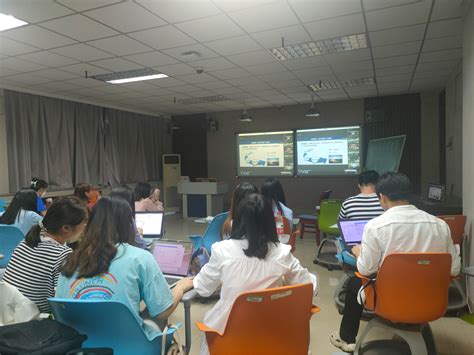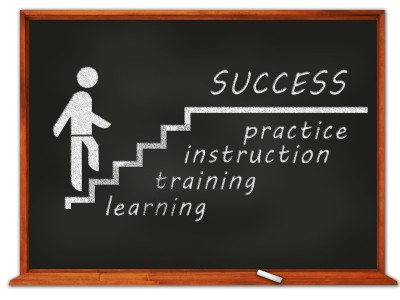教育技术专业课程中的批判性思维
Title: Navigating the Landscape of Educational Technology Courses
In the realm of education, technology has become an indispensable tool for both educators and learners. Educational technology (EdTech) courses aim to equip individuals with the knowledge and skills to effectively integrate technology into teaching and learning processes. Let's delve into the various aspects of educational technology courses and explore how they can benefit both professionals and students.
Understanding Educational Technology Courses
Educational technology courses encompass a diverse range of topics, including instructional design, learning theories, educational psychology, technology integration, and emerging trends in EdTech. These courses are designed to cater to educators, instructional designers, administrators, and anyone involved in the field of education.
Core Components of EdTech Courses
1.
Instructional Design
: This component focuses on the systematic process of designing, developing, and delivering instructional materials to facilitate effective learning experiences. Topics may include curriculum development, assessment strategies, and pedagogical approaches.2.
Technology Integration
: EdTech courses emphasize the integration of various technological tools and platforms to enhance teaching and learning outcomes. This involves exploring software applications, multimedia resources, learning management systems (LMS), and educational apps relevant to different subject areas and grade levels.3.
Learning Theories
: Understanding various learning theories provides a foundation for designing impactful learning experiences. EdTech courses often explore behaviorism, cognitivism, constructivism, and connectivism, helping educators apply these theories to create engaging and personalized learning environments.4.
Educational Psychology
: Delving into educational psychology helps educators comprehend the cognitive, emotional, and social aspects of learning. Topics such as motivation, cognitive development, and classroom management strategies are integral to fostering a conducive learning environment.5.
Emerging Trends
: Given the rapid evolution of technology, EdTech courses keep abreast of emerging trends such as augmented reality (AR), virtual reality (VR), artificial intelligence (AI), and adaptive learning technologies. Educators learn to leverage these innovations to enhance learning experiences and cater to diverse learner needs.Benefits of Pursuing EdTech Courses

1.
Enhanced Pedagogical Skills
: EdTech courses empower educators with innovative teaching strategies and pedagogical approaches that cater to diverse learning styles and preferences.2.
Effective Technology Integration
: By gaining proficiency in educational technology tools and platforms, educators can seamlessly integrate technology into their teaching practices, fostering interactive and collaborative learning experiences.3.
Personalized Learning
: EdTech courses equip educators with the knowledge to implement personalized learning experiences tailored to individual student needs, thereby maximizing student engagement and achievement.4.
Professional Growth Opportunities
: Continuous professional development in educational technology enhances career prospects and opens doors to leadership roles in curriculum development, instructional design, and educational consultancy.5.
Preparing Students for the Future
: By embracing EdTech, educators prepare students for the demands of the digital age, equipping them with essential digital literacy skills and fostering creativity, critical thinking, and problemsolving abilities.Guidance for Choosing EdTech Courses
1.
Research Course Offerings
: Explore reputable institutions and online platforms offering EdTech courses, considering factors such as course content, faculty expertise, accreditation, and alumni reviews.2.
Assess Your Learning Objectives
: Determine your specific goals and learning objectives, whether it's mastering a particular technology tool, exploring pedagogical theories, or obtaining a professional certification.3.
Consider Flexibility and Accessibility
: Choose courses that align with your schedule and learning preferences, whether it's attending inperson classes, participating in online modules, or a blended learning approach.4.
Seek Professional Development Opportunities
: Look for courses that offer opportunities for handson practice, collaboration with peers, and access to resources such as webinars, workshops, and networking events.5.
Stay Updated on Industry Trends
: Choose courses that cover emerging trends and technologies in educational technology, ensuring that your skills remain relevant and futureproof in a rapidly evolving landscape.In conclusion, educational technology courses play a pivotal role in empowering educators with the knowledge, skills, and resources to harness the potential of technology for transformative teaching and learning experiences. By embracing EdTech, educators can foster innovation, engagement, and lifelong learning in today's digital age.





